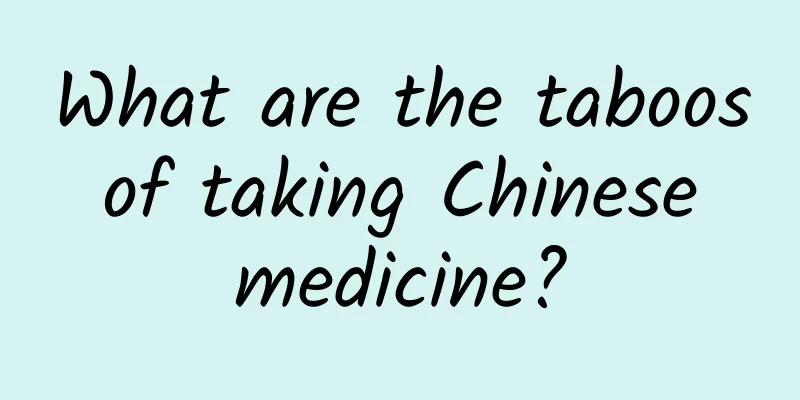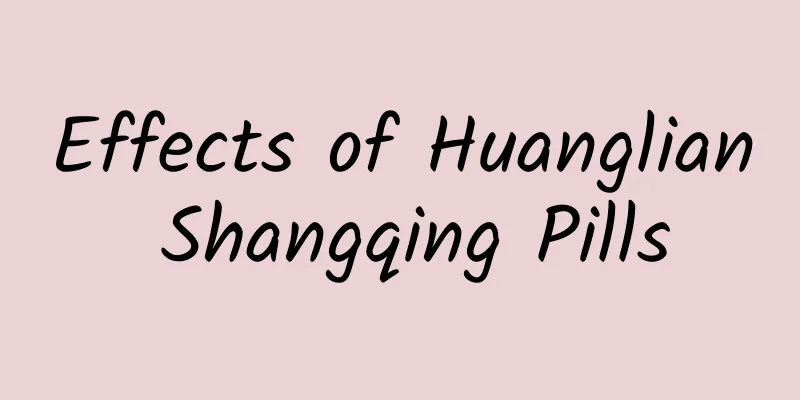What are the taboos of taking Chinese medicine?

|
Traditional Chinese medicine has no side effects, which many of us know. Those medicinal materials obtained from nature can fundamentally solve the pain for everyone, and now more and more people choose to take traditional Chinese medicine to treat diseases. However, when you are sick, do you have to avoid certain foods when taking traditional Chinese medicine, or can you eat anything after taking the medicine? How to take traditional Chinese medicine correctly is something we should know. The following content will teach you how to take traditional Chinese medicine correctly and what are the taboos when taking traditional Chinese medicine. 1. Radish Experts remind that whether you are taking Chinese or Western medicine, you should try to avoid eating radishes while taking the medicine, otherwise the medicinal properties will be greatly affected. The reason why many people’s condition does not improve after taking a large amount of medication is largely related to improper diet. Especially when taking Chinese medicine, you should not eat radish, except for some medicines for regulating qi and resolving phlegm. The reason why you cannot eat radish during this period is because radish has the effects of digesting food and breaking up gas, especially when taking tonic Chinese medicine such as ginseng and astragalus. Studies have confirmed that radish weakens the tonic effects of ginseng and other foods, and thus has little therapeutic and nourishing effect. Therefore, people who often take Chinese medicine should be careful and stay away from radishes. 2. Raw and cold While taking Chinese medicine, you should try to avoid eating all kinds of raw and cold foods. Chinese medicine points out that raw and cold foods are mostly cold in nature and very difficult to digest after eating. Moreover, raw and cold foods can irritate the stomach and intestines after consumption. In this case, if you take Chinese medicine immediately, it will seriously irritate the gastrointestinal tract, thereby affecting the gastrointestinal absorption of the drug. Therefore, special attention should be paid to avoid eating raw and cold foods when taking Chinese medicine to treat "cold symptoms", such as medicines for warming the meridians and unblocking the collaterals, and medicines for dispelling cold and dampness. In addition, there are some people with poor spleen and stomach function. Even if they are not taking Chinese medicine to strengthen the spleen and warm the stomach, they cannot eat raw and cold food in their daily lives, otherwise it will make the symptoms more serious. 3. Spicy People who are taking traditional Chinese medicine also need to avoid various spicy foods. Otherwise, not only will the medicinal properties be weakened, but it may even react with the medicine and seriously endanger human health. Moreover, Chinese medicine in our country points out that hot and spicy foods are mostly warm in nature, consume qi and stir up fire. Therefore, you should try to avoid such foods when taking Chinese medicines for clearing heat and eliminating toxins, nourishing yin and increasing fluids, cooling blood and nourishing yin. You should also try to avoid eating spicy foods during the treatment of carbuncles and ulcers. For example, foods like onions, garlic, pepper, mutton, dog meat, etc., if consumed while taking traditional Chinese medicine, will offset the effects of the medicine, and some may even promote inflammation and cause bleeding symptoms. The above introduces the taboos of taking Chinese medicine. I believe everyone has already known about it. I also want to tell you that tea contains tannins, and strong tea has a higher content. When taken with Chinese herbal medicine, it can combine with certain proteins, alkalis, and heavy metal salts in the Chinese herbal medicine to produce precipitation, which will affect the absorption of the active ingredients of the medicine. Therefore, do not drink strong tea when taking Chinese medicine. |
<<: What are the taboos of taking Chinese medicine?
>>: What are the taboos of drinking Chinese herbal medicine?
Recommend
Medicinal Value of American Ginseng
American ginseng is a very good tonic. Eating mor...
Seahorse dad can "give birth"
They are the only species where males give birth ...
A Brief History of Global Festivals丨How much do you know about the world's largest international organization?
In this issue of A Brief History of Global Festiv...
The efficacy and function of leucophylla
Chinese medicinal materials have good effects on ...
my country will experience the most complicated Spring Festival travel weather since 2008, so please be careful when traveling back home!
The Central Meteorological Observatory predicts t...
The Gatekeeper of Light: How Polarized Lenses Tame Glare
Imagine that you are a little detective with a pa...
What are the effects of drinking Rubia cordifolia wine?
You may not be very familiar with madder. What we...
The error is no more than 1 second in hundreds of millions of years! Who gave the atomic clock such "terrifying" accuracy?
What is the principle of atomic clocks? How do th...
What are the effects and functions of Magnolia officinalis flower?
Magnolia flower is a wild plant Chinese herbal me...
The efficacy and function of Ginkgo biloba
When it comes to Ginkgo biloba, we are all famili...
"Unique" bird fossils fill the 70 million-year gap in bird brain evolution|Expo Daily
Could Black Swans Become an Invasive Species in m...
The efficacy and function of donkey meat
As for donkey meat, I think some people may have ...
The efficacy and function of thorny taro
Thorny taro is a common Chinese medicine in clini...
The efficacy and function of Huanglong vine leaves
Huanglong vine leaves are a medicinal material th...
Sun Wukong turned into a little monkey, can Yangli Daxian turn into a little lamb?
On July 5, 1996, on a soft summer night in Roslin...









